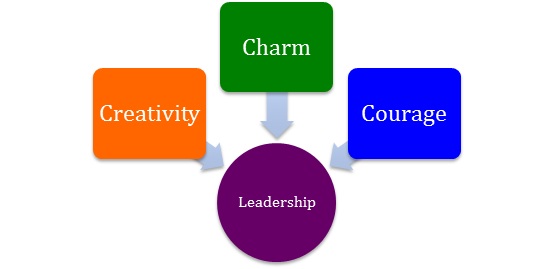Catherine Staite
If Brian Tracy and Ron Arden are right when they say the deepest craving of human nature is the need to feel valued and valuable. The secret of charm is therefore simple: make others feel important – then charm must be a crucial attribute for leaders.
Charm is shorthand for a sophisticated set of skills which enable you to make new connections and solve old problems. Charm is about much more than being nice in a superficial way – otherwise known as ‘smarm’. If you don’t have real charm then just be gruff and honest. Everyone will understand. Smarm, on the other hand, will simply breed distrust.
The truly charming have notable skills. They are interested in others. They pay them real attention and give them positive regard – as opposed to the barely controlled irritation demonstrated by some powerful people in their dealings with underlings. Even if they attempt to catch you with a bright idea when you are en route to the toilet, don’t snap – suggest they catch you on the way back, when you can give them your full attention. You need all the bright ideas you can get.
Charming leaders also know how to listen, not just to what the people you lead are saying but what they perhaps feel they can’t say to you. A leader who doesn’t listen won’t have access to all the facts, no-one will tell them the unvarnished truth and they won’t hear when people are trying to tell them they may just be wrong. The failure to listen renders leaders about as effective – and as potentially dangerous – as a blindfolded driver. You may have had experience of a leader who doesn’t listen. Remember how awful that was and don’t case that level of distress to your staff.
Charming leaders seek to bring people together and that has never been more important for local government. Albert Camus observed that charm is a way of getting the answer ‘yes’ without ever having asked a clear question. You need a lot of people to say ‘yes’ to a lot of things they may not necessarily like if you are going to effect real change.
There is so much good work going on around collaboration for the benefit of the people we all serve but there are still so many terrible instances of people in senior positions who perpetuate old feuds and personalize organizational battles, to the point where there is no way out for anyone. A history of corrosive, destructive pettiness endlessly repeats itself.
I am sometimes obliged to listen to a range of grievances going to back to 1974 and it’s no fun. The petty disputes I observe range from being mere energy vampires to the evidence of utter moral failure. Those disputes are about the past and you have to get beyond them – and encourage your members to do the same. You are leading in the present to build a better future and you’ll need all your energy and charm to do that. That behavior will shape your organizational culture and ripple through external relationships to the point where no-one can articulate or even want to remember why this country doesn’t co-operate with that district or vice versa. That will have an impact across your area and beyond – so your charm is a force for real good.
It’s amazing how pervasive and powerful an influence the chief executive and top team have on the culture of their council. When the people I pass in your corridors are smiling – in spite of all the challenges – I know their leaders have charm and their councils will survive and thrive.
Catherine Staite is the Director of INLOGOV. She provides consultancy and facilitation to local authorities and their partners, on a wide range of issues including on improving outcomes, efficiency, partnership working, strategic planning and organisational development, including integration of services and functions.


